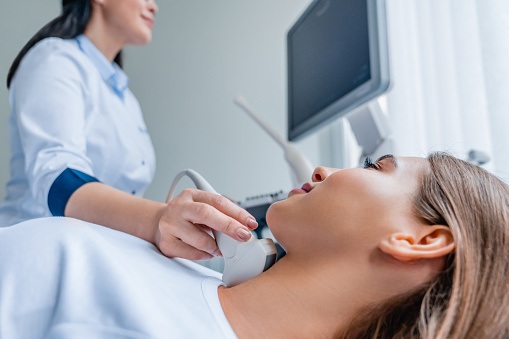

Health risk diagnostics
PERSONALIZED PREVENTION FOR LONGEVITY
Our approach goes beyond diagnostics – it delivers a personalized action plan based on data and expert insight. Through the analysis of over 200 medical parameters, you can identify potential health risks early, prevent disease, and take mindful care of your quality of life.
How it works

The process begins with a consultation with your dedicated physician, who will create a diagnostic program tailored to your health status.
Next, a multidisciplinary team of medical specialists – supported by artificial intelligence – will analyze your test results to identify individual health risks.
Your dedicated physician will then review the report with you and present personalized preventive recommendations.

ELEMENTS OF HEALTH RISK DIAGNOSTICS
Your dedicated physician will assess your current health status and therapeutic goals, taking into account lifestyle factors such as sleep quality, nutrition, physical activity level, and stress management strategies.
Cardiovascular risk evaluation includes ECG testing, echocardiography, and abdominal ultrasound, along with an extended panel of laboratory tests: lipid profile, inflammatory markers, complete blood count, and levels of electrolytes and trace elements.
Spirometry allows the assessment of lung function by measuring the volume and flow of air during inhalation and exhalation.
It allows for the assessment of skin cancer risk, mapping of moles, and monitoring their changes over time.
Breast ultrasound and transvaginal ultrasonography. The diagnostic process is complemented by liquid-based cytology combined with testing for both oncogenic and non-oncogenic HPV strains.
Prostate and testicular ultrasound. The diagnostic process is supplemented by tests for total and free PSA levels.
This non-invasive screening test helps detect bleeding, polyps, ulcers, and potential cancerous changes in the colon.
This assessment uses a medical-grade SECA analyzer to measure your body composition, including fat percentage, muscle mass, and hydration levels.
A physiotherapist evaluates your posture, range of motion, and muscle tension to identify injury risks and define personalized strategies for improving physical fitness.
Analysis of dietary habits and laboratory test results, including those related to carbohydrate, hormonal, and electrolyte balance, as well as vitamin and trace element levels.
The test assesses gut microbiota balance, identifies the risk of dysbiosis, and determines a detailed gut bacterial profile.
Carbohydrate metabolism is evaluated using glucose and insulin curves (OGTT), allowing for the early detection of insulin resistance, prediabetes, and type 2 diabetes.
Abdominal ultrasound and laboratory tests help evaluate the function of the liver, gallbladder, and pancreas.
Thyroid ultrasound allows for structural evaluation and the detection of nodules and inflammatory conditions. The diagnostic process is complemented by hormonal testing.
Ultrasound of the kidneys, urinary tract, and bladder, combined with urine analysis, helps assess kidney function and detect potential metabolic disorders.
Who this is for
For anyone who wants to understand their health risks and take early steps toward prevention.
Even more possibilities
Enhance your health risk diagnostics with a package of genetic tests or our Navigator membership package for comprehensive support of your health and well-being.
